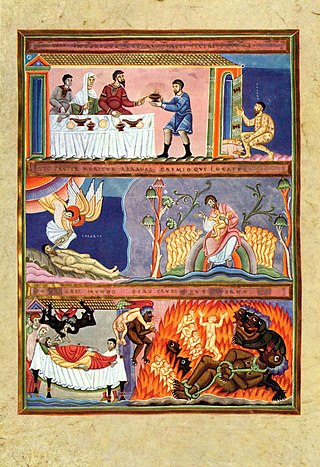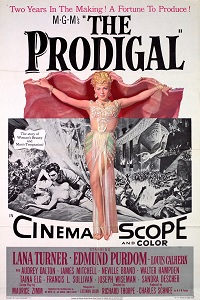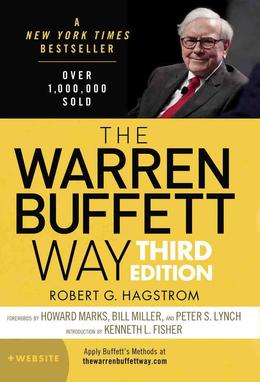Related Research Articles
Finance refers to monetary resources and to the study and discipline of money, currency, assets and liabilities. As a subject of study, it is related to but distinct from economics, which is the study of the production, distribution, and consumption of goods and services. Based on the scope of financial activities in financial systems, the discipline can be divided into personal, corporate, and public finance.

The parable of the Good Samaritan is told by Jesus in the Gospel of Luke. It is about a traveler who is stripped of clothing, beaten, and left half dead alongside the road. A Jewish priest and then a Levite come by, both avoiding the man. A Samaritan happens upon him and, though Samaritans and Jews were generally antagonistic toward each other, helps him. Jesus tells the parable in response to a provocative question from a lawyer in the context of the Great Commandment: "And who is my neighbor?" The conclusion is that the neighbor figure in the parable is the one who shows mercy to their fellow man or woman.

The Parable of the Prodigal Son is one of the parables of Jesus in the Bible, appearing in Luke 15:11–32. In Luke 15, Jesus tells this story, along with those of a man with 100 sheep and a woman with ten coins, to a group of Pharisees and religious leaders who criticized him for welcoming and eating with tax collectors and others seen as sinners.

The talent was a unit of weight used in the ancient world, often used for weighing gold and silver, but also mentioned in connection with other metals, ivory, and frankincense. In Homer's poems, it is always used of gold and is thought to have been quite a small weight of about 8.5 grams (0.30 oz), approximately the same as the later gold stater coin or Persian daric.

The Parable of the Talents is one of the parables of Jesus. It appears in two of the synoptic, canonical gospels of the New Testament:

The rich man and Lazarus is a parable of Jesus from the 16th chapter of the Gospel of Luke. Speaking to his disciples and some Pharisees, Jesus tells of an unnamed rich man and a beggar named Lazarus. When both die, the rich man goes to Hades and implores Abraham to send Lazarus from his bosom to warn the rich man's family from sharing his fate. Abraham replies, "If they do not listen to Moses and the Prophets, they will not be convinced even if someone rises from the dead."

The Richest Man in Babylon is a 1926 book by George S. Clason that dispenses financial advice through a collection of parables set 4,097 years earlier, in ancient Babylon. The book remains in print almost a century after the parables were originally published, and is regarded as a classic of personal financial advice.

The Good Shepherd is an image used in the pericope of John 10:1–21, in which Jesus Christ is depicted as the Good Shepherd who lays down his life for his sheep. Similar imagery is used in Psalm 23 and Ezekiel 34:11–16. The Good Shepherd is also discussed in the other gospels, the Epistle to the Hebrews, the First Epistle of Peter and the Book of Revelation.
The Parable of the Unjust Steward or Parable of the Penitent Steward is a parable of Jesus which appears in Luke 16:1–13. In it, a steward who is about to be fired tries to "curry favor" with his master's debtors by remitting some of their debts. The term "steward" is common in many English translations of the New Testament; some versions refer to a "manager", or an "accountant". This parable does not appear in the other gospels.

Matthew 21 is the twenty-first chapter in the Gospel of Matthew in the New Testament section of the Christian Bible. Jesus triumphally or majestically arrives in Jerusalem and commences his final ministry before his Passion.

Luke 16 is the sixteenth chapter of the Gospel of Luke in the New Testament of the Christian Bible. It records the teachings and parables of Jesus Christ, including the account of the "rich man and Lazarus". There is an "overriding concern with riches" in this chapter, although other topics are also covered. The book containing this chapter is anonymous, but early Christian tradition uniformly affirmed that Luke the Evangelist composed this Gospel as well as the Acts of the Apostles.
John Paul Meier was an American biblical scholar and Roman Catholic priest. He was author of the series A Marginal Jew: Rethinking the Historical Jesus, six other books, and more than 70 articles for peer-reviewed or solicited journals or books.

The Prodigal is a 1955 Eastmancolor biblical epic CinemaScope film made by MGM starring Lana Turner and Edmund Purdom. It was based on the New Testament parable about a selfish son who leaves his family to pursue a life of pleasure. The film also features James Mitchell, Louis Calhern, Joseph Wiseman, Cecil Kellaway, Audrey Dalton, and Walter Hampden. Dancer Taina Elg made her film debut in The Prodigal.
Stewardship is a theological belief that humans are responsible for the world, humanity, and the gifts and resources that have been entrusted to us. Believers in stewardship are usually people who believe in one God who created the universe and all that is within it, also believing that they must take care of creation and look after it. Creation includes animals and the environment. Many religions and denominations have various degrees of support for environmental stewardship. It can have political implications, such as in Christian democracy.
Klyne Ryland Snodgrass is an American theologian and author, who served as professor of New Testament Studies at the North Park Theological Seminary in Chicago, Illinois from 1974 to 2015. His publication Stories with Intent: A Comprehensive Guide to the Parables of Jesus garnered a 2009 Christianity Today Book Award.

KSGR is a non-commercial FM radio station licensed to Portland, Texas, and serving the Corpus Christi metropolitan area. It is branded as "Solid Ground Radio" and is owned by the Calvary Chapel of the Coastlands, Inc. "Solid Ground" is a reference to the Biblical parable of the "Two Builders." The studios and offices are on Rodd Field Road in Corpus Christi.

The Warren Buffett Way, a book by author Robert Hagstrom, which outlines the business and investment principles of value investing practiced by American businessman and investor Warren Buffett.

St. John's Syrian Malankara Catholic Cathedral is the seat of the Archbishop of the Syro-Malankara Catholic Archeparchy of Tiruvalla.

Becoming Warren Buffett is a 2017 documentary film about Warren Buffett and his life. The film was made for HBO.

The Parable of the Rich Fool, also known as The Money Changer, is an oil painting on canvas of 1627 by Rembrandt, now in the Gemäldegalerie, Berlin. Produced early in the artist's career, it depicts the eponymous Biblical parable. The model for the figure is said to have been Rembrandt's father.
References
- ↑ Joel A. Tuminaro (2010), Biblical Principles of Money Management
- ↑ Rich Brott (2008), 30 Biblical Principles For Managing Your Money
- ↑ Jeffrey A. Johnson, James S. Poore (September 2005), Christian Principles for Managing Money, Xulon Press, ISBN 9781597816106
- ↑ Rick Warren, Richard Warren (2002), The purpose-driven life: what on earth am I here for?, p. 267